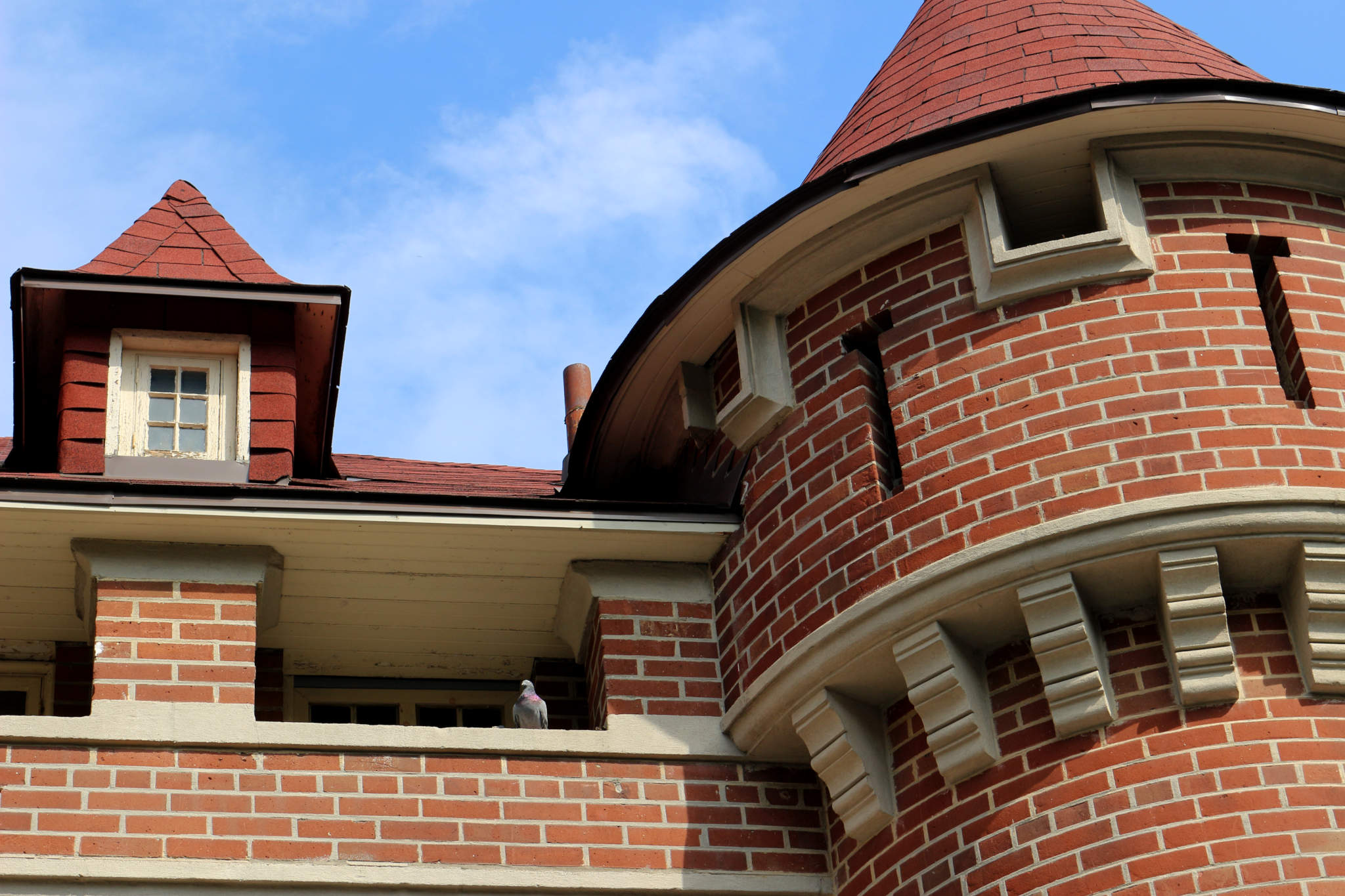It has never been quite so hard to be understood. As an obsessive weirdo who has been deliberately trying to understand and reach more and more kinds of people for decades (which also means endlessly confronting my own foolishness and vanities) I think I see parts of this problem in a technical sense, somewhat more clearly than people who are still cozy within their own ‘safe’ social group (people who already agree with all of our own favourite assumptions, biases and blind-spots).
But just to be super clear here, I’m not claiming to be immune to tribalism – more like a recovering sufferer who was exiled anyhow – I lived in that mentality for years first, and vividly remember the pleasure taken and shared in grotesque tribal sneering (with enduring shame). In fact, it was realizing that social tribes were a totally inadequate system for true compassion (and thus, absolutely not a moral framework) which made me begin to seriously deconstruct my own cheap bigotry, so I could learn how to reach and grow further.
The greatest secret I have uncovered in many years of seeking along this path? You’ll think it’s too simple and laugh, but I mean it.
Get over yourself and listen. Set yourself aside to listen. Quiet your demons by listening. Find purpose through listening. Find peace in listening. Relight the fire of hope by listening. (you get the general idea)
The stuff that happens inside our own head is a chaos of complexity – we’ve got physical neurological structures and synaptic cascades of electrical activity, we’ve got constantly changing neurochemistry, there are our fabulously complex extended nervous and immune systems (which include things like digestion, which we used to think could be separated and ignored completely, but now understand to be central to all healthy function – mental included).
On top of that physical brain stuff there is mind-stuff as we experience it – memory and pattern and mood and temperament and our own special personal blend of mental stressors, challenges and problems.
And then there’s all the stuff we heard, which stuck. Parents, school, reading, TV, gossip, freaky inspiration, studies to make sense of craziness, answers sought and appealing lies – all count.
Bringing all of that complexity to bear on our moment to moment consciousness, we end up living inside a world of some stuff we think is true, and some stuff we think is false, and some stuff we still don’t know about but are curious, and some stuff we don’t care to ever know.
There is also another category beyond true false and I don’t know, which we might think of as an optional add-on for consciousness. Adding this state to our thinking is extra work for sure, and not strictly necessary for most day-to-day purposes – but it can get you some interesting and revealing results which the easier approach does (and can) not. That extra category is – Maybe – or more precisely, weighted doubt.
No seriously, if we add maybe to true and false (or even better, a range from weak maybe to strong maybe) then remember to check on how the strength of those maybes changes over time, we are far less likely to ignore important new ideas, because we lazily simplified and wrongly thought them settled when we first encountered them – in either direction.
So yes, mind is a marvel, a wonder, a dazzle of complex inter-relationship. We really can get lost back here, so easily (and many do).
But then – what about the whole rest of the entire world outside of our precious little skulls? If we are each complex as individuals, then surely the world as a whole can be nothing less than staggeringly awesome to even try to think about.
In using the word awesome, I am not trying to invoke some intangible religious idea here (though I by no means reject it), I am after an instrumental point. Awe is not the telltale reaction of the ignorant to the sophisticated, as some cynics would now have it, awe is the deep and correct sense of scale we have, when we remember to fit ourselves into the everything else out there.
For a lot of people, that’s too much. They need a shoebox to hide in, with an air hole and a tiny gap to peek out of, an illusion of safety. Folks who require such emotional nests have all of my sympathy. A staggering proportion of the people I grew up with were traumatized in various ways (and I say that in the old hard-clinical sense – not the new sloppier usage indicating discomfort or inconvenience).
But inside the shoebox, the stuff in our head (including the demons) gets too big in proportion, and along with the fear, we hide from the awe which would help us realize those things which vex us, are also smaller than we think and feel.
So, for those who need that nest of sanctuary – what we want to try to do, wherever possible, is hide in there while doing primary healing only, but then return to the more challenging and inspiring world outside of our shoebox-heads for our learning meaning and purpose again, just as soon as we possibly can. Because in seeing and responding to us, the world will allow us incomparably greater vitality and far more vivid and helpful lessons than we could ever hope to self-generate.
And no folks, sorry – the web does not make it not-a-shoebox – that’s a seductive illusion now proven absolutely false by the mass loneliness and alienation results we see, everywhere around us.

F@ck the Kids
I was a book nut and history keener as a kid, so I first noticed that history was the exact same stuff we were living through, as a paperboy – watching conflicts from around the world unfolding on the front page, at the same time as I was reading about weirdly similar fights from a century or more before, often over the same turf or prize. For more than forty years since, I’ve been looking for this kind of awareness (we must study the then, to learn about the now) to finally emerge in the general public, but alas, it is still mostly history keeners who care about the lessons. Most normal people now outright abuse history just to win petty fights, deploying disconnected fragments in ways so ignorant and overemotional that they prove they do not understand the history they are invoking AT ALL – and are in any case really just fighting for the same reason apes fling dung – rather than seeking greater understanding through mutual contention of ever improving ideas.
I also grew up inside the largest urban commune which ever happened in North America – which showed me two sharply contradictory things, which might help explain my strange obsession with asking questions and looking for paths of humane self-overcoming.
The first is that some of the ideas from socialism about shared burdens are as practical as can be, and could improve our lives in all kinds of ways (from loneliness to nutrition) all while creating extraordinary efficiencies (domestic especially) across all strata of society. Things like community meals, day care and the rich emotional connection of bringing our elderly and young back together, after generations of too much distance. Even when it comes to pocketbook stuff like groceries at cost (be your own grocer – just volunteer your labour for a shift) or shared capital for housing – yes, people who are actively cooperating on a team can do way way more, for way more people, with way less stuff (loaves and fishes, almost). It isn’t theory – it absolutely works.
So I should be able to go running around the world and saying “Hey everybody, here is a part of the revolutionary program that you have to check out – it works and it’s fun and it’s cheap and it would also instantly solve our mass loneliness and alienation problems!”
But I can’t – even though I spent my teenage years as a young socialist and read like crazy into that side of history also, which helped add balance to the imperial histories many of us are used to. The reason I can’t, is that along with leftist theory, I have also studied the question – how do we form a group that can cooperate that well? (then share the many gains which that earns us).
And this is the part of the thing which really drives me nuts – because even though we’re still stuck arguing about some things which I have seen demonstrated as self-evident and load-bearing, as if they are weak idealist theories (rejecting key ecological and social lessons) we are also pretending that a bunch of things which seemed like truths decades ago, really are – despite shockingly clear evidence to the contrary – the ratios rewards and satisfactions of life itself getting worse for our young, for a half a century straight – and still diminishing.
The thing about a working theory is that you MUST test it – and then you keep on looking closely to see where it doesn’t work – and then you change the theory to reflect your new knowledge so that the theory better reflects reality, and steers more into help, fewer into harm.
If you don’t watch to see where the theory breaks down in practise – you don’t have a working practical theory anymore (weighted doubt) you have simple blind belief – which may still be of use, but can no longer claim to be knowledge about the world itself, so much as the infinitely more subjective landscape inside our own heads.
“If only women ran the world, there would be no war” was a sweet theory along these lines. Sounds great until you notice Bill Clinton’s secretary of state Madeline Albright, who publicly said the death of four hundred thousand Iraqi children was “a price worth paying”, or her disciple Hillary Clinton, who proudly lead the charge to utterly destroy Libya as a functioning nation state, and in the process basically raped the northern half of the entire African continent with a vast flood of weapons. For those who’ve been watching the rest of the world and for longer, Indira Gandhi was already proof the theory was flawed, some might even point all the way back to Golda.
In any case – it’s a sweet thought which happens to be bullshit. I do think it’s fair to say “if only women who weren’t psychopaths ran the world there would be no war” – but if men who weren’t psychopaths ran things, I would expect the same result. The key filter wasn’t sex.
Lesson learned? Really really not. We love our killers more than ever, we just rationalize for them better than ever too – nice result!
In the case of my commune, there was an obvious and really striking problem – mass child abuse – I mean, almost no one got through it unscathed. So now – how do you even assert that something was a society, when it casually destroyed its own young? You simply can’t – the idea is clearly preposterous – but amazingly, whole books have been written on the commune as if it was a bold social experiment, which manage to lightly dismiss this ABSOLUTELY FATAL flaw. Externality – making the cost someone else’s problem – is a kind of violence.
In fact, the level of cheerful (that is, psychotic) self congratulations on the part of many members, remains so acutely painful to their legions of victims to this day, that the only possible way to make a satisfying movie about this commune would be to fictionalize a cathartic end to the abusers and their enablers, which our dull reality will not ever grant any of the victims. (The way the evil villain’s lair gratuitously blows-up at the end of a silly spy movie, would definitely get the audience pumping their fists and cheering – “justice at last!”) Nice utopia.

Gardens and Poetry
In the self serving mythology of the boomer generation there is no year more misunderstood than nineteen sixty eight. I was just a tot at the time, so you might think me unqualified to dissect it – but like I said, I was immersed in it, and later made a long study of revolution, so it isn’t as if I come to this with no more than my childhood witness (which understood the times just well enough to be afraid of helicopters).
It was an important year in a lot of ways – but the most damaging lie is simple as can be. The Democratic convention of nineteen sixty eight in Chicago, which saw dramatic violence from the police, against massive peaceful political protests, was not an heroic revolutionary victory, as it is often portrayed – it was the absolute defeat of the revolutionary aspirations of the boomer generation as a whole – and forever.
To this day there are some that proclaim – “we unmasked the state, and forced it to reveal it’s violence” – but that could only be a popular revolutionary gain, with organized movements ready to take coordinated and responsible advantage of every advance in public awareness.
What happened on the simplest terms is that a generation which thought itself unstoppable challenged the state to a fight – the state showed up with tanks and bayonets – everybody freaked out and ran away – and then – rather than learning a lesson about organizing and preparedness – they said – “hey guys, what if we all change the definition of revolution, so we can just say we won?”
Now let me stop and make clear, we have made a ton of social progress for individual freedoms over the succeeding decades – and I am glad of every bit of this. As I have noted before, several gay men in the commune were important creative and intellectual mentors for me in my youth (and none of them were among the many abusers, to be clear). Their misery, back when homosexuality was widely despised and in many places still illegal, was obvious and heartbreaking. The fact that my gay friends can now live full lives is a huge win.
Same goes for many other groups, to be sure – but that change in status and acceptance has been especially dramatic, within my own witness and lifetime.
But even though those gains in dignity and rights affect our interior lives constantly, and our interpersonal lives also, they are not revolutionary – because just like the hippies who retreated from the barricades to poetry and gardens, they are about our own happiness.
Nothing wrong with that – but the point of a revolutionary movement – the point of organizing – the point of standing up – is change for all.
We didn’t just get eight hour days and weekends off, organized serious passionate people won those rights for us (back when striking often meant facing sustained violence).
Overtime pay, universal education, state pensions – even all of the modern ‘welfare state’ programs, which many of my American friends like to attribute to the kindness of Franklin Roosevelt or Lyndon Johnson – those weren’t ever “gifts” – those programs were emergency economic rebalancings, which were designed to stave off the pressures for outright insurrection among the organized and furious workers, so as to preserve the dominance of the most economically powerful.
They were anti-guillotine measures, taken by terrified aristocrats!
Lately, I find myself thinking about the Ford Strike in Windsor Ontario (right across the river from Detroit) back in 1947. This was the strike which, arguably, set the tone for the post war working class boom in both Canada and the United States. What was special about it? All of those workers had just got home from war, and really badly wanted to have a peaceful life.
BUT – they also understood discipline and organization, and had a proven and formidable ability to withstand violence, or even dish it out.
In many ways, they might have been the least revolutionarily motivated generation in a long while – please, can’t we just have peace again? But I can’t help thinking that the fact that they were, just by dint of their experience, a force outstandingly capable of truly upending the power balance of the state, was what made the corporations decide to bribe, rather than challenge, that cohort of the working class.
Which earlier-earned rewards were of course most fully enjoyed by the boomers, and have been on a steady decline for a half a century or so, ever since (some date the turn from Nixon, the oil crisis and floating currencies, some point to Reagan and the capital gains exemptions which have more or less created our new and shockingly corrupting corporate aristocracy).
That is to say – not only have we not been defending our own shared class interests against the corporations and bankers who have always conspired to do the workers down – we’ve done even less to defend the interests of our children, and their children too.
It isn’t just that the boomers got suckered into playing the market, with their unprecedented retirement capital (and thus celebrated many changes which made the economy far more hostile to others, simply because it improved their own rate of return). Rather than say, building housing.
The fact is – we aren’t a thing that can scare the state anymore, and we haven’t been for a long while (and yes I know we can still get folks on the street – but like I said – we would need mass organization for any of that to go anywhere, and we are almost incapable of that now).
This isn’t a diss, just an observation – and I worked in school environments in the eighties, nineties and right up to covid, too – so I have been able to observe the changes in socialization first hand. Heartbreaking stuff, in almost every way (one step forward, four back).
Here’s the thing – by all objective measures we are lonely, heartbroken, frustrated, miserable. Individually, this makes us want that cozy shoebox, with one little hole to look out of – but we will never get to say where or how all the shoeboxes are stacked, that way. Not ever.
We will also never experience love, until we get out of the box. Same goes for connection, purpose, inspiration, play, challenge – all the stuff that makes us feel alive, reminds us that we can still learn new things, and in that way, do more with life than we have so far.
Out of the box we can organize, we can recognize common purpose, we can get drunk together and have great arguments which help us realize how much of our conflict was always our own ignorance and excited imagination. We can bond and then form popular fronts.
Or we can keep hiding online, whining and begging for the same old planet-cidal aristocracy to whip us more gently. (which is about ten thousand times more likely, going by current evidence)
Frog in a pot says what?
Just please – don’t call that stuff revolutionary. It can’t be – not until we are out of our shoeboxes and filled with love for others.
Yes folks – the thing that gives us backbone at the barricades, that helps us organize ACROSS tribal lines – the genuinely dangerous, revolutionary, scary-to-the-state thing, for which both Malcolm X and Fred Hampton were brought down – is LOVE.
Which, even when maddening, is way better than anything you can find inside the box, trust me
(and believe me pal, I say this as a fellow survivor with a wan smile, not a blithering misty-opt)
¯\_(ツ)_/¯









